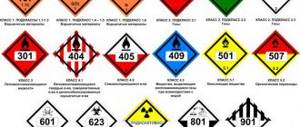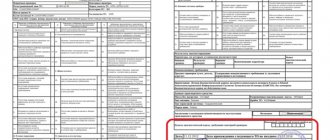Decision of the Supreme Court of the Russian Federation dated December 13, 2021 N 18-AAD18-5
Judge of the Supreme Court of the Russian Federation S.B. Nikiforov, having considered in open court the complaint of the defender of Borisova Olga Igorevna, acting on the basis of a power of attorney in the interests of the joint-stock company “Zvezdochka Ship Repair Center”, against the ruling of the judge of the Krasnodar Regional Court dated August 14, 2021 to reject petition for the restoration of the missed procedural deadline for appeal, issued in a case of an administrative offense provided for in Part 7 of Article 12.21.2 of the Code of the Russian Federation on Administrative Offenses, in relation to the joint-stock company “Zvezdochka Ship Repair Center” (hereinafter referred to as “Zvezdochka Ship Repair Center” JSC, company) , Resolution of the Supreme Court of the Russian Federation dated September 17, 2021 N 41-AD19-13
Judge of the Supreme Court of the Russian Federation S.B. Nikiforov, having considered the complaint of Oleg Aleksandrovich Gordienko against the decision of the state inspector of the Southern Interregional Administration of State Road Supervision of the Federal Service for Supervision in Transport dated March 23, 2021, the decision of the judge of the Aksai District Court of the Rostov Region dated May 15, 2021, the decision of the judge of the Rostov Regional Court dated August 7, 2021 and the resolution of the Deputy Chairman of the Rostov Regional Court dated March 6, 2021, issued against Oleg Aleksandrovich Gordienko (hereinafter referred to as O.A. Gordienko) in the case of an administrative offense, provided for in Part 1 of Article 12.21.2 of the Code of the Russian Federation on Administrative Offenses, Decision of the Supreme Court of the Russian Federation dated November 1, 2021 N 53-AAD18-12
Judge of the Supreme Court of the Russian Federation Nikiforov S.B., having considered in open court the complaint of the state inspector of the department for control of international road transport and road supervision of the Siberian Interregional Directorate of State Road Supervision (MUGADN) of the Federal Service for Supervision in the Sphere of Transport (Rostransnadzor) Volkova A.V. . against the decision of the judge of the Sverdlovsk District Court of Krasnoyarsk dated May 21, 2021 and the ruling of the judge of the Krasnoyarsk Regional Court dated August 23, 2021 to leave the complaint without consideration, issued in the case of an administrative offense provided for in Part 1 of Article 12.21.2 of the Code of the Russian Federation on administrative offenses in relation to the limited liability company Sangilen Oil Company (hereinafter referred to as NK Sangilen LLC),
Ruling of the Supreme Court of the Russian Federation dated March 10, 2017 N 303-AD16-19934 in case N A51-5984/2016
at the request of the limited liability company “Company MSA” to declare illegal and cancel the resolution of the Department of State Road Safety Inspectorate of the Office of the Ministry of Internal Affairs of the Russian Federation for the city of Vladivostok dated March 15, 2016 25PPK(u) N00000366 on bringing to administrative liability under Part 1 of the article 12.21.2. Code of the Russian Federation on Administrative Offenses with the imposition of punishment in the form of an administrative fine in the amount of 400,000 rubles,
Resolution of the Supreme Court of the Russian Federation dated October 4, 2017 N 29-AD17-5
The courts in the appealed acts, among other things, drew attention to the fact that the amount of money transferred by A.V. Grushichev to a police officer, significantly exceeds the amount of punishment provided for by the sanction of Part 2 of Article 12.21.2 of the Code of the Russian Federation on Administrative Offenses for a driver who has violated the rules for the transportation of dangerous goods.
Determination of the Judicial Collegium for Civil Cases of the Supreme Court of the Russian Federation dated December 11, 2017 N 69-КГ17-26
Canceling the decision of the court of first instance and satisfying the claims of Timofeev I.A. on invalidating the results of an internal audit regarding the conclusion about the need to dismiss Timofeev I.A. from the internal affairs bodies in connection with his commission of an offense discrediting the honor of an employee of the internal affairs bodies, on his reinstatement in service in the internal affairs bodies, the recovery of monetary allowance for the time of forced absence, the court of appeal indicated that the plaintiff committed a violation of official discipline (disciplinary offense ), expressed in failure to comply with the requirements of the job description (the plaintiff did not ensure the implementation of regulatory legal acts regulating the scope of his official activities, did not properly organize the activities of the technical and road supervision department of the State Traffic Safety Inspectorate of the Ministry of Internal Affairs of Russia in the city of Nyagan, did not issue information to the employees of the technical and road supervision department of the State Traffic Safety Inspectorate The Department of Internal Affairs of Russia for the city of Nyagan issued the relevant orders and instructions and did not monitor their implementation, did not consider the received materials on cases of administrative offenses), which resulted in the non-involvement of administrative liability under Article 12.21.2 of the Code of the Russian Federation on Administrative Offenses, officials of LLC “ AutoLineService”, LLC “Citadel” and these legal entities, however, these violations do not constitute an offense discrediting the honor of an employee of the internal affairs bodies.
Resolution of the Supreme Court of the Russian Federation dated January 16, 2021 N 41-AD19-23
Judge of the Supreme Court of the Russian Federation S.B. Nikiforov, having considered the protest of the Deputy Prosecutor General of the Russian Federation L.G. Korzhinek. on the decision of the state inspector of the Southern Interregional Directorate of State Road Supervision of the Federal Service for Supervision in Transport dated May 16, 2021, the decision of the judge of the Aksai District Court of the Rostov Region dated August 6, 2021, the decision of the judge of the Rostov Regional Court dated October 22, 2021, which entered into legal force and the resolution of the Deputy Chairman of the Rostov Regional Court dated May 13, 2021, issued against Oleg Mikhailovich Barinov (hereinafter O.M. Barinov) in the case of an administrative offense under Part 1 of Article 12.21.2 of the Code of the Russian Federation on Administrative Offences,
Decision of the Supreme Court of the Russian Federation dated April 11, 2021 N 47-AAD18-5
Judge of the Supreme Court of the Russian Federation V.P. Merkulov, having considered in open court the complaints of defender A.S. Shumlyansky, acting in the interests of the limited liability company “A7 Agro”, against the ruling of the judge of the Orenburg Regional Court dated January 17, 2021 N 21-27 /2021 and the ruling of the judge of the said court dated 03/06/2021 N 21-69/2021, held in the case of an administrative offense provided for in Part 1 of Article 12.21.2 of the Code of the Russian Federation on Administrative Offenses, in relation to the limited liability company “A7 Agro” ( hereinafter – society),
Decision of the Supreme Court of the Russian Federation dated April 11, 2021 N 47-AAD18-6
Judge of the Supreme Court of the Russian Federation V.P. Merkulov, having considered in open court the complaints of defender A.S. Shumlyansky, acting in the interests of the limited liability company “A7 Agro”, against the ruling of the judge of the Orenburg Regional Court dated January 19, 2021 N 21-26 -2021 and the ruling of the judge of the said court dated 02.28.2021 N 21-70/2021, held in the case of an administrative offense provided for in Part 1 of Article 12.21.2 of the Code of the Russian Federation on Administrative Offenses, in relation to the limited liability company “A7 Agro” ( hereinafter – society),
Ruling of the Supreme Court of the Russian Federation dated October 23, 2021 N 307-ES19-18142 in case N A13-8650/2021
Judge of the Supreme Court of the Russian Federation Pershutov A.G., having studied the cassation appeal of individual entrepreneur Alexander Nikolaevich Shchapin against the ruling of the Arbitration Court of the Vologda Region dated 05.14.2021 in case No. A13-8650/2021, the decision of the Fourteenth Arbitration Court of Appeal dated 06.18.2021 and the ruling of the Arbitration Court court of the North-Western District dated 07/30/2021 on the same case on the application of the individual entrepreneur Alexander Nikolaevich Shchapin to the Territorial Department of State Road Supervision for the Vologda Region of the North-Eastern Interregional Directorate of State Road Supervision of the Federal Service for Supervision in the Sphere of Transport to declare illegal and cancel the resolution dated 04/25/2021 N 188/l on bringing to administrative liability under Part 2 of Article 12.21.2 of the Code of the Russian Federation on Administrative Offences,
Classification
The list of dangerous goods compiled by the UN includes 3.5 thousand items.
Among them are the following classes:
- Explosives that can detonate during movement.
- Gaseous substances in various storage containers.
- Flammable liquid and solid elements.
- Oxidizing substances.
- Infected materials and poisons.
- Objects contaminated with radiation, waste from radioactive production and materials themselves that are highly radioactive.
- Alkalis, acids and other corrosive elements.
Changes to ADR 2020
In July 2021, amendments came into force, changing some provisions of ADR. The adjustments affected the following provisions:
- the list of dangerous goods has been supplemented with polymerizing substances (with an additional subclass of class 4);
- it is allowed to transport this category of substances in soft packaging subject to established standards;
- the format of most of the international accompanying documentation for these transport operations has been changed;
- vehicles carrying hazardous substances under UN number 3077 are allowed to cross tunnels; 3082;
- transport regulations have been tightened;
- the procedure for certifying drivers and consultants has been improved;
- the labeling of hazardous components has been adjusted;
- It has been established that a vehicle carrying more than 3.5 tons of exhaust gas must be equipped with anti-lock brakes.
Earlier (from 2021), a new regulation of the Ministry of Internal Affairs on the admission of transport to dangerous cargo transportation was approved with the following adjustments:
- according to the list of completed documentation;
- administrative registration of transport operations with changes in approval terms;
- to tighten government control;
- introducing situations in which it is impossible to issue documents through “Government Services”.
Transportation of high-risk cargo requires strict compliance with the regulations established by law. The consequences of emergency situations during such cargo transportation can be much more serious than the prescribed punishment for violating the prescribed requirements.
Transport mode
Each dangerous cargo has its own instructions for transportation. The basic transportation rules are as follows:
- Availability of necessary equipment (sealed tanks, cylinders, containers, etc.).
- Strengthened and reliable brakes, additional locking brake system.
- Reliable isolation of dangerous cargo from other components and assemblies of the machine.
- Availability of general and special fire extinguishers.
- More than 3 years of experience and driver's permits.
- External design of the vehicle with dangerous cargo signs.
- Statutory documentation from the shipper.
Sanctions for non-compliance
The Russian legal framework has developed strict measures for improper transportation of dangerous goods. They are indicated in Art. 12.21.2 of the Code of Administrative Offenses of the Russian Federation:
- If a license and other necessary permits are not issued, and the equipment of the vehicle does not correspond to the type of cargo, the law punishes all participants. The driver will be charged 2-2.5 thousand rubles. and may be deprived of rights for up to 6 months.
- Managers will be charged 15-20 thousand rubles.
- Legal entities that are the owners of a transport company will be punished the most. Their penalties will amount to up to 0.5 million rubles.
What is the penalty for transporting without permission?
If, when transporting cargo classified as dangerous, the driver does not have documents with him allowing him to do this, the very first traffic police patrol will be the end of the vehicle’s journey. In such cases, the driver is given at least a fine.
The legislation provides for liability for both the driver and the company that organized the transportation , as well as representatives of organizations that are responsible for sending this flight. This provision will be valid both for intercity communication and for transportation from one country to another.
The court may impose a sentence on the payment of a substantial sum of money to the state, or imprisonment, therefore drivers transporting dangerous goods should take the preparation of documents for the cargo with full responsibility.
If, when stopping a car whose cargo is marked “dangerous!”, traffic police representatives are not presented with permission to transport this cargo, the following measures may be applied as punishment:
- If the driver transporting dangerous goods is a private person, he will be liable under Article 12.21.2 of the Administrative Code. For transportation of cargo recognized as dangerous, you must pay a fine of 2000-2500 rubles. In cases where the cargo is transported with permits, but the transportation rules are not followed or are not fully observed, a fine is also imposed.
- When driving a vehicle with cargo classified as dangerous, without permission, the driver, who is an official, has a different responsibility. According to the rules established by Article 12.21.2 of the Code of Administrative Offences, it is necessary to pay 15-20 thousand rubles into the fine piggy bank.
- If dangerous goods are transported in the absence of documents or in violation of the rules for transporting goods, the driver - a legal entity - pays a fine of 400-500 thousand rubles.
Fines under the Code of Administrative Offenses also apply to the following types of violations:
- there are no documents confirming that a person driving a vehicle with dangerous cargo has the necessary experience and skills to ensure its safety;
- the papers are incorrectly drawn up, which must confirm that this vehicle is equipped in full compliance with the rules - warning signs and various information materials should be placed on its body, prompting actions in case of danger, leakage of contents, or possible explosion.
In case of violation of the rules for transporting dangerous goods, the differences are as follows:
- when transportation is carried out incorrectly, with insufficient compliance with the rules, if the person responsible is a private person, the fine will be 1000-1500 rubles;
- if an official commits violations, he will have to pay 5,000-10,000 rubles;
- if the culprit is a legal entity, it will be fined in the amount of 150-250 thousand rubles.
Violations of rules by different types of transport and liability
- By road transport - in case of violation of the rules of transportation by land vehicles, the punishment for the driver is determined by Article 12.21.2 of the Code of Administrative Offenses of the Russian Federation.
Rules regarding the labeling of transported materials and hazard class must be followed, and a procedure for dealing with unexpected situations must be developed. - By railway - for transportation carried out by this type of freight transport and not complying with the rules, punishment is applied in accordance with Article 11.14 of the Code of Administrative Offenses.
All marking regulations must also be followed on each wagon that transports dangerous goods. - By water or sea transport - making mistakes is punishable by Art.
8.19 Code of Administrative Offences. In some cases, it is not possible to get away with an administrative fine - the ship may be arrested. - Air transport - if inaccuracies are made, the perpetrators are punished in accordance with the rules adopted for air transportation.
The authorities of a certain region, city, or locality may also create special requirements for the transportation of goods.
ADR/ADR standards
Since 2021, the European Agreement concerning the International Carriage of Dangerous Goods by Road (ADR) has become the legislative basis for the transportation of dangerous goods. Russia has been fulfilling its requirements since 1994 on international routes.
Since 2021, international ADR standards have been in force in our country.
This international document assigns a special UN number (UN identifier) to each type of hazardous elements in a special List. The following rules have been developed for them:
- marking on the body and parts of the machine, container or packaging;
- danger warnings on vehicles and containers;
- indication of the class of the substance;
- loading and unloading algorithm;
- indication of the degree of danger;
- designation of the transport unit, etc.
ADR defines 13 main hazardous substances:
- gasoline, diesel, kerosene fuel;
- explosive substances - gunpowder, firecrackers, cartridges, etc.;
- gas;
- poisons;
- explosive and flammable elements;
- capable of causing oxidation and corrosive destruction;
- radioactive elements;
- hazardous waste, etc.
They can be transported by a driver who has at least three years of continuous driving experience and who has undergone special ADR training. The vehicle must have the appropriate permit.
For the vehicle you need to obtain a certificate from the traffic police for the transportation of explosive goods and liquids. Freight transport must have a diagnostic card indicating that it has undergone technical inspection every 6 months. Before submitting an application for licensing, you must obtain a permit to work with hazardous substances from the police department, and agree on a route list with the traffic police.
Violators of ADR are seriously punished
Transporting dangerous goods without ADR is subject to penalties provided for in the Administrative Code. In addition, maximum penalties are imposed for the following types of non-compliance:
- The driver has not been trained and has not received a certificate of completion of courses on working with dangerous loads.
- The managers did not obtain the required vehicle approval.
- No special permit or cargo hazard information system emergency card has been received.
- The vehicle is not suitable for transporting this type of dangerous cargo.
- The vehicle and container are not marked with the required marking symbols and other necessary information about the dangerous cargo.
- The conditions for transporting hazardous elements are not met.
For less serious violations the following penalties are imposed:
- For drivers – a fine of 1-1.5 thousand rubles.
- For managers – up to 1 thousand rubles.
- For owners and companies – 150-250 thousand rubles.
Features of the relationship between all parties involved
If the vehicle on which the transportation is carried out belongs to the person who receives the goods, the same party carries out self-pickup of the products. The resolution states that the following may participate in transportation:
- The shipper is the one who delivers the products.
- Consignee – the person to whom the item of trade is to be delivered.
- Carrier is a party that undertakes to accept the goods and move them from one place to the destination in accordance with the terms of the concluded agreement.
In this case, relations with the person responsible for transporting products for counter provision are regulated by civil law. Securing the signed agreement as a compensation agreement ensures economic balance for the participants in the process.
When ADR is not needed
Some transport can be carried out without ADR. The requirements of this international agreement are not mandatory in the following cases:
- For vehicles whose speed limit does not exceed 40 km/h.
- For transport of the Russian Army.
- For private owners transporting goods for personal consumption.
- For goods transported by special authorities and rescue services during emergency rescue operations.
- For transportation of waste from existing enterprises.
- For transportation of empty containers.
- Cargoes not listed in the ADR list.
- With small container sizes, low weight, which are determined in each specific case, etc.
Permits for transportation of high-risk cargo
The list of this type of cargo is contained in table 1.10.3.1.2 ADR. To transport them, you must obtain a permit.
Depending on the route, permits are issued by Rostransandzor (for travel on federal highways), local executive authorities (for transport on regional and municipal roads), and the owner of the road (for travel on private areas). The maximum validity period of the permit is 1 year.
To obtain permission, you must provide copies of the following documents:
- vehicle registration certificate;
- confirmation of ownership or rental agreement;
- permitting a vehicle to transport dangerous goods;
- Driver training certificates.
The following requirements apply to all vehicles:
- Equipment with satellite navigation systems GLONASS, GLONASS/GPS.
- Installation of orange plates made of fireproof and durable materials with the cargo identification number and hazard code printed on them.
- Applying the number, hazard code, load position arrows and other marking elements on the container or packaging.
There are increased requirements for waybills. The accompanying documentation must include the following information:
- Information about the cargo according to ADR classification.
- Description of packaging and number of packaging units.
- Indication of especially dangerous goods.
- Additional information about temperature and other conditions of cargo transportation, explanation of symbols.
- Instructions for driver safety and behavior in emergency situations.
- Permit for transportation of especially dangerous goods.
- Substance passport, product safety data sheet, certificates.
- Invoice.
- Technical passport, technical certificate and driver's license.
Documents required for the transport of dangerous goods
- special permit for the transportation of dangerous goods by road (for high-risk goods);
- certificate of vehicle approval for the transportation of dangerous goods;
- certificate of driver training for the transportation of dangerous goods;
- instructions for the driver, responsible persons, accompanying person on the rules of transportation;
- waybill with cargo markings;
- cargo safety data sheet;
- waybill;
- contract of carriage.
Penalties for transportation violations
For transportation of especially dangerous goods without permission, the maximum fines provided for in the relevant article of the Administrative Code of the Russian Federation are imposed. Drivers, managers and company owners are subject to penalties.
Traffic police officers will stop the car and prohibit its further movement along the route if they detect the incorrect transportation of particularly dangerous cargo. The courts may order an additional large sum to be paid to the state, and criminal penalties may be imposed on the drivers.
If an accident occurs...
Accidents and incidents involving vehicles with cargo that poses a threat to others can be serious and destructive. They often kill or seriously injure people, the driver and other road users. The accidents that occur cause damage to the environment and the surrounding area.
In such cases, the court may imprison the culprit for 2-9 years if people die or are seriously injured in the accident.
If a person is drunk and driving a car with dangerous cargo, they will be charged up to 200 thousand rubles. or imprisonment for 2 years.
The managers and owners of transport companies that organize the route are also punished for accidents and emergencies that occur on the road. In addition to fines, the court may award legal entities compensation for death and injury to people and damage to the environment.
Exceptional cases when transportation is possible without permission and without signs
On March 12 of this year, the law on “special cargo” intended to ensure state security came into force. Such cargo can be transported without permission.
The list of such cargo is established by a special government act.
A permit will not be required for self-propelled vehicles transporting particularly dangerous goods.
Without plates with detailed markings, dangerous goods can be transported on one transport unit if the tonnage and quantity are less than the standards specified in ADR.
Is it possible to transport propane and oxygen cylinders?
And we complicate our questions even more. Here the situation is also regulated by ADR, which regulates the general rule - you can transport dangerous goods for personal use and retail sale. But additional conditions appear from paragraph 1.1.3.6.3, which establish the maximum volume for transporting compressed gases in cylinders, depending on the class of the substance (flammable methane or propane or ordinary oxygen) and the mass and volume of the cylinder.
Let us not complicate things and describe all sorts of variations, and simply give the maximum volumes for the transportation of dangerous goods.
Table of the maximum volume of gas cylinders for transportation
| What are we transporting? | How is it packaged? | Maximum volume per car |
| Oxygen | In cylinders of 40 (less often – 50) liters | 24 cylinders (20 in case of 50 liters) |
| Propane | 50 liters and 21 kilograms | Up to 15 pieces |
| Nitrogen | 40 or 50 liters | Accordingly, 24 or 20 cylinders |
| Argon | Cylinders 40 liters | 24 pieces |
Something else useful for you:
- Is it possible to register a car with the MFC today and how? Instructions
- What is the fine and what else threatens for forgotten licenses and car documents?
- New Order No. 664 and a certificate of an accident - is it needed?
Pros and cons of obtaining the status of an individual entrepreneur
The legal system does not restrict the work of individual entrepreneurs in this area.
Individual entrepreneur status provides the same opportunities as for a legal entity, but more preferential taxation. However, the individual entrepreneur may encounter the following difficulties:
- The main customers, legal entities, prefer to work with contractors who pay VAT, i.e. are on the OSNO (general taxation system).
- Legal entities can be interested in cooperation by reducing transportation tariffs by 18% from the cost offered by other competing companies that work for OSNO.
Compliance with legislation is mandatory for all transport systems
In addition to road transport, other types of vehicles may be involved in the movement of dangerous goods. The main rules of ADR with such a combined route must be observed on all transport systems:
- railway;
- water or sea;
- air
The organizer of road transportation must provide his vehicle in advance with the necessary equipment for loading and unloading operations onto other types of transport for a combined route.
Admission to ADR
When transporting hazardous components by road, the contractor is required to obtain permission from the motor transport supervision authorities. To issue such a permit, the company confirms the presence of:
- equipped transport, adapted to move this category of cargo;
- development of internal instructions on the procedure for performing such cargo transportation, actions of personnel in normal and emergency situations;
- elaboration of the route when determining the route with minimal risks for other road users, other people and the environment;
- driver training in ADR with the issuance of the appropriate certificate;
- a traffic safety consultant on staff of the organization, trained and certified in accordance with the procedure established by law.
The listed measures indicate the safety of the transport operation with appropriate documentary evidence.
Providing inaccurate documentation, the absence or use of a fake permit during dangerous cargo transportation does not guarantee compliance with the standards established by law, and has risks of corresponding adverse consequences in the event of a substance leakage or an accident during the movement of exhaust gases.
On a note. If transportation involves rail, water or air transport, the contractor must obtain a license issued by the transport supervision authority for the specified direction in the region where the contractor is registered.
In the area of close attention of the traffic police and regulatory authorities
Every dangerous goods transport organizer has a lot of work to do before sending a vehicle on the road. But you need to fulfill every point, because violations are punished strictly, and the attention of the traffic police throughout the trip will be increased.
Vehicles carrying dangerous goods are only allowed to travel on those roads that have been designated by regulatory authorities as acceptable for the movement of this type of vehicle.
Along sections of the routes, video cameras are installed to monitor the road situation. The driver will not be able to avoid responsibility for violating traffic rules.
At each traffic police post, employees pay increased attention to transport with dangerous goods.
The transport company must comply with the rules of documentation, monitor the condition of the vehicle fleet, and hire experienced drivers who have undergone the necessary training. By complying with the legal requirements for the rules for the transportation of dangerous goods, the organizer will be able to ensure safe work in this complex area.
List of documents for the transportation of dangerous goods.
Views: 8,851
Transporting alcohol
But here the requirements are somewhat different. Specifically regarding ethyl alcohol and any alcoholic products, regulation is carried out not only by ADR on the transportation of dangerous goods, but there are also other laws and, accordingly, fines for such transportation.
According to paragraph 1 of Article 26 of Federal Law No. 171-FZ, the transportation of unlabeled alcoholic substances in quantities of more than 10 liters per car is prohibited on any vehicle. The fine for this ranges from 3 to 5 thousand rubles under Article 14.17.2 of the Code of Administrative Offenses of the Russian Federation.
Unlabeled alcohol means that you are prohibited from transporting, among other things, moonshine, various kinds of tinctures and other alcohol-containing drinks produced at home, as well as ethyl alcohol in draft containers (regular bottles or carboys, etc.), if the total volume is over 10 liters for one car.
In addition, distilling moonshine for personal use is not prohibited by 2021 laws. This was also confirmed by the Ministry of Finance. However, if the police find out that you are selling alcoholic products, then you may also face fines and other punishments: under Articles 14.2, 14.17 or 14.17.1 of the Code of Administrative Offences, or even under Article 171.3 of the Criminal Code of the Russian Federation (if the sale is made in large quantities).











